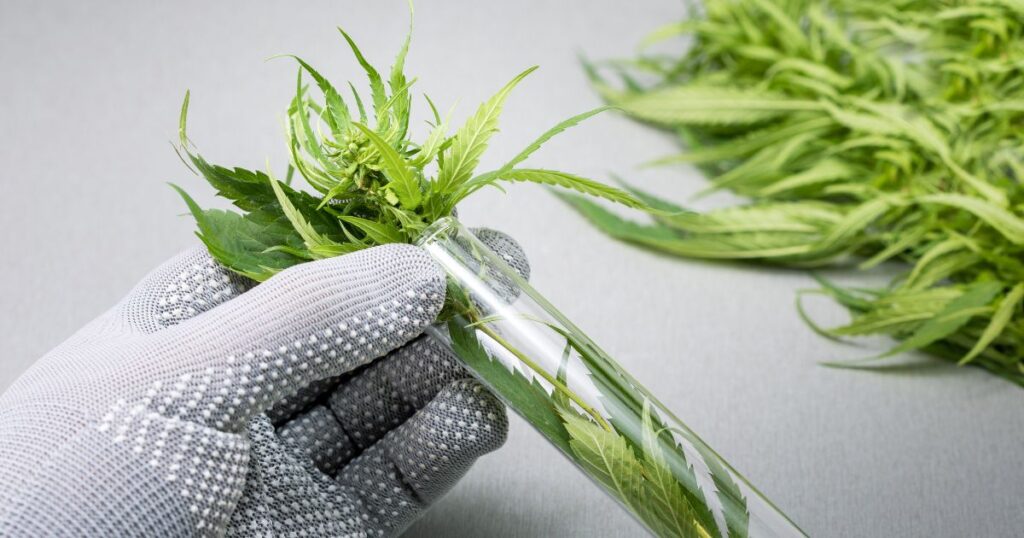“THIS IS PASTEURIZATION 2.0!” as Matt Bayliss, owner of Garden of Gele, slammed his fist on a table at a stakeholder meeting back in November 2024. He also went on saying how there is no label requirement that lets consumers know it has been remediated, with gamma rays or any other method for that matter.
He would like to see that change in the upcoming session with an upcoming legislation bill. Matt went from one of the first adult-use operators, then later in 2024, went back to medical full-time after the regulations in adult use. That comment has been ringing in my ear ever since I left the meeting that night, and it got me thinking. What can cannabis farmers learn from dairy farmers industries, especially when it comes to these processes?
Let’s get real for a second: pasteurization and cannabis remediation are both hailed as “necessary” processes in their respective industries, but in reality, they’re more about convenience and shelf life than preserving quality. Sure, they’re supposed to make products safer, but at what cost? Both processes degrade the very essence of what makes the product good in the first place. Let’s dive into why these practices should raise some serious red flags.

Production Degradation
In the case of pasteurization, you’re essentially heating your food or beverage to death. Sure, you’re killing off harmful microorganisms, but you’re also killing off the good stuff—like vitamins, enzymes, and, worst of all, flavor. Ever tried pasteurized juice? Yeah, it’s basically the sad, lifeless version of what it used to be. The same thing happens with dairy. That fresh milk? Gone. Now, it’s just a watered-down, flavorless shadow of its former self. Luckily, in Maine, we have what’s called a Right to Food law that allows us to sell raw milk now.
Cannabis remediation follows this same tragic path. The process involves high heat or chemical treatments that strip away cannabinoids and terpenes—the very compounds that make cannabis effective and enjoyable. The result? A product that’s less potent and far less flavorful. That’s why more cannabis companies are leaning on gamma rays to avoid the intense heat. But guess what? The damage is still there, just less obvious.
Alteration of the Chemical Profile
Let’s talk about how pasteurization messes with the product’s chemical makeup. The heat changes everything. It alters the flavor and even removes nutrients that the product originally had. Take pasteurized dairy, for example: it has a flat, cooked taste that no one asked for. And it’s not just taste; you lose nutrition too. It’s an overall downgrade.
In cannabis remediation, the same tragedy unfolds. Whether it’s through vacuum distillation or high heat treatments, essential cannabinoids and terpenes often get sacrificed. What you’re left with is a less potent, less flavorful product. Does it still work? Sure, but it’s nowhere near as effective or enjoyable as the original, untainted version. If the whole point of cannabis is to enjoy the full spectrum of effects and flavors, why are we actively stripping that away? And if they don’t use heat treatments, they will use gamma rays which need next to no heat.
Impact on Consumer Perception
Pasteurization might keep your product “safe,” but it also keeps it from feeling fresh. Consumers know that pasteurized products aren’t as pure or natural. There’s a reason people are obsessed with raw, unprocessed foods—they trust the fresh, real deal—pasteurization, in all its glory, strips that trust away.
When it comes to cannabis remediation, the story is the same. Consumers are skeptical about the science behind it, especially when it involves things like gamma radiation or chemical treatments. They’re not sure what’s actually happening to the cannabis during remediation, and the whole process starts to feel unnatural and shady. If anything, it screams “over-processed,” which is a turn-off for consumers who are looking for that fresh, unadulterated cannabis experience. Nobody wants their bud to feel like it’s been through a lab experiment.
Cost and Resource Intensity
Let’s be clear: pasteurization isn’t cheap. It requires specialized equipment that eats up energy and increases production costs. Maintaining that equipment is a whole other ballgame. Smaller producers struggle to keep up because they just can’t afford the high price tag of pasteurization. But of course, the big players can, and they’re the ones who benefit the most. Smaller businesses? They get squeezed out.
Cannabis remediation machines are no different. They come with hefty price tags, not to mention the astronomical costs to keep them running. Whether it’s chromatography, gamma radiation, or whatever high-tech system you’re using, these machines require a significant investment that not every cannabis producer can afford. It’s yet another hurdle that small producers just can’t clear, forcing them to either cut corners or shut down altogether. It’s a financial game that only the big players win.
Impact on Smaller Producers
For small-scale food producers, pasteurization can be an absolute killer. It’s not just about the cost of the equipment—it’s the complexity of implementing it. If you’re a small operation, good luck trying to scale up to meet the requirements. The reality is you probably won’t be able to.
In the cannabis world, remediation poses the same problem. Small producers are getting priced out of the game. These expensive machines and high-tech treatments aren’t just cost prohibitive—they’re also so complex that many small producers can’t afford to operate them. This creates a lopsided market where only the giants with deep pockets can play, leaving everyone else in the dust.
Loss of Product Integrity
Now, let’s talk about the loss of product integrity. Pasteurization is essentially about making things shelf-stable but at the cost of the freshness that people want. That “raw” juice or milk that feels real? It’s gone. In its place, you’ve got a processed, sterilized version that just doesn’t have the same appeal.
In cannabis, remediation does the same thing. Consumers want full-spectrum products with all the cannabinoids and terpenes intact. But remediation methods—especially the harsher ones—strip all that away. The result? A product that’s less natural, less effective, and far less exciting. Why pay a premium for something that’s been altered so much it no longer feels authentic?
Both pasteurization and cannabis remediation are processes designed to make products “safer” or longer-lasting, but they come at a significant price. Whether it’s the loss of nutrients, the alteration of flavors, or the skyrocketing costs, these practices strip away the very qualities that consumers care about. In the end, it’s not about improving products—it’s about mass production and profit margins. If you care about real quality, fresh flavor, and the integrity of the product, these methods aren’t the solution. They’re the problem.
This is an opinion piece and does not necessarily reflect the views of Beard Bros Pharms.
More work from Derek here at Beard Bros Pharms:
A Look Inside Maine’s Medical and Adult Use Cannabis Markets.
When Was Maine’s First Cannabis Recall?

Derek Shirley was born and raised in Pittsburgh, Pennsylvania. At the age of 19, he received a felony for 4 ounces of cannabis. After, he became a “cannabis nomad” living in Ohio, Arizona, and Maine, which he now calls home, and lives with his wife Sequoia and son Haze.
Being a cannabis nomad had its advantages, like relying on all markets for his medical cannabis needs which gives him a unique perspective of the cannabis markets. Currently, he is an influential pro-cannabis activist in the state of Maine who helps local people and small businesses navigate their local and state governments without picking a political party specializing in protecting and preserving the small medical cannabis farmers of Maine. For fun, Derek enjoys screen printing and making cannabis memes under the pseudonym @gettinghighwithcats on IG.















